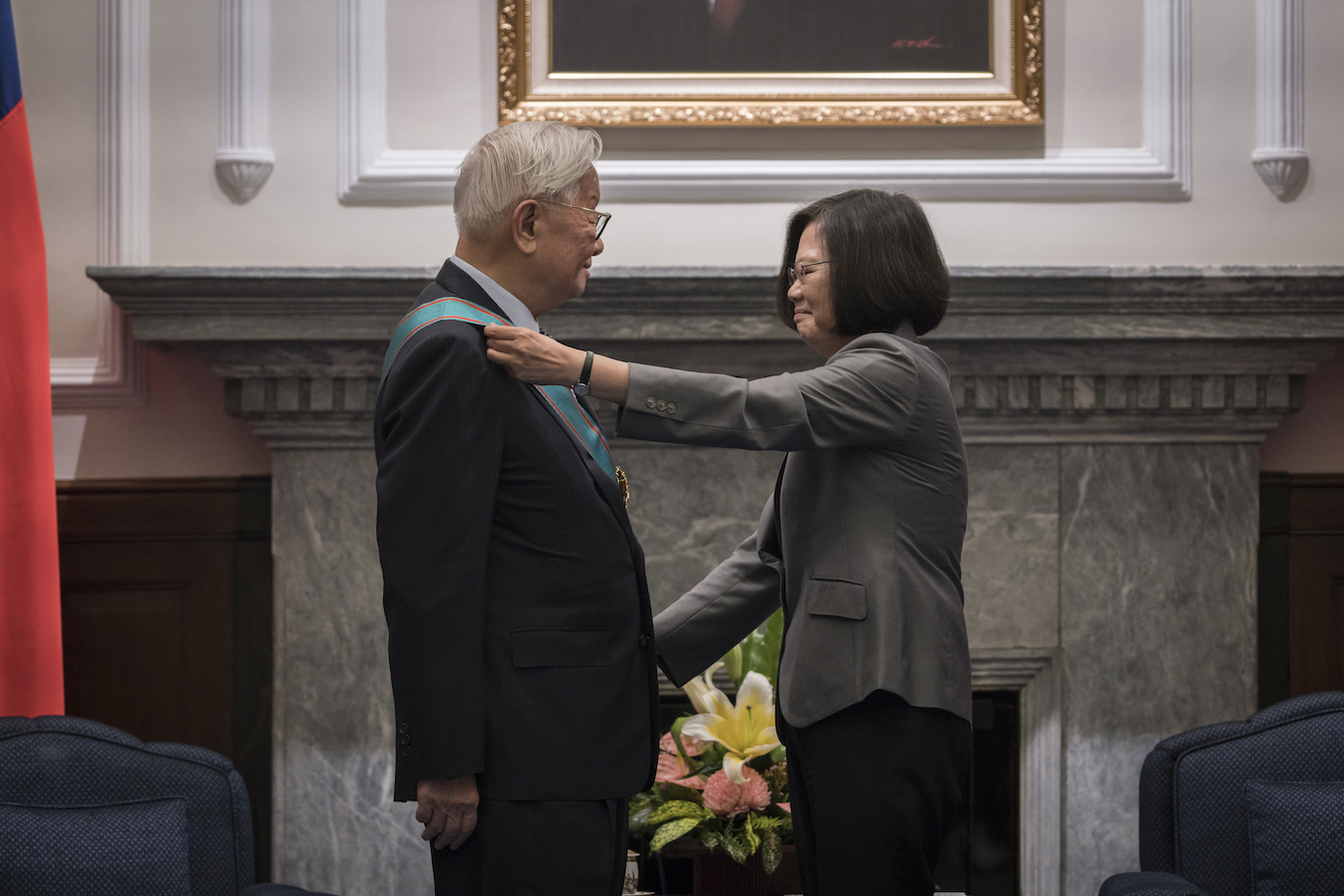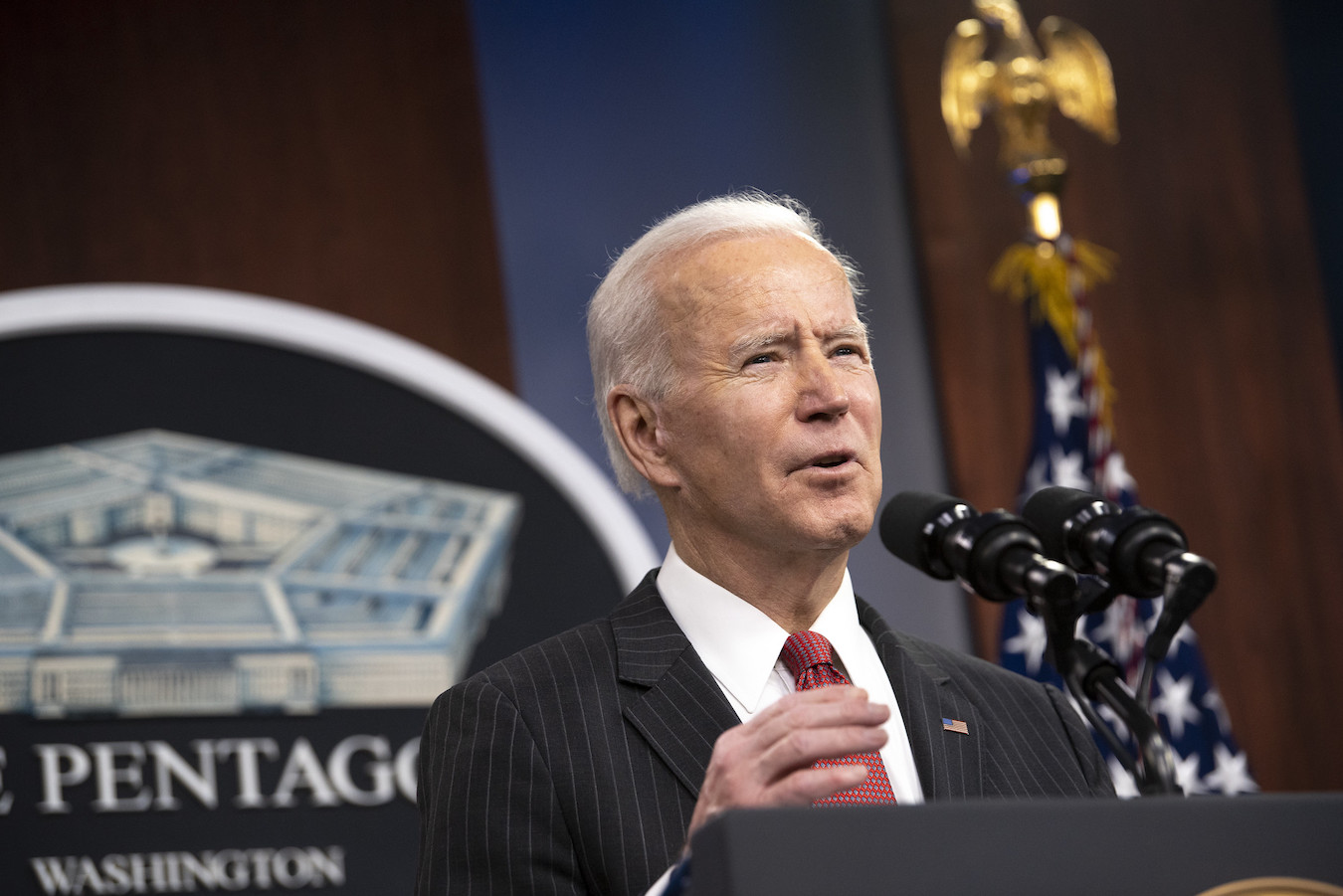by Brian Hioe
語言:
English
Photo Credit: Arusanov/WikiCommons/Public Domain
A PETITION WAS recently launched by a union group in Arizona, the Arizona Pipe Trades 469 PAC, calling for blocking the visas of TSMC workers.
In particular, the union calls for blocking the visas with the view that Taiwanese workers would be called in to replace American workers. Likewise, the union petition cites dangers by TSMC workers on the worksite.
TSMC founder Morris Chang is famously anti-union, viewing them as deleterious to profits and efficiency. Chang has also lashed out at what he views as the poor work ethic of American workers in the past, suggesting that this did not compare to that Taiwanese workers would work overtime in order to fix issues.
 Morris Chang being awarded the Order of Propitious Clouds with Special Grand Cordon by President Tsai Ing-wen in 2018. Photo credit: Presidential Office/CC BY 2.0
Morris Chang being awarded the Order of Propitious Clouds with Special Grand Cordon by President Tsai Ing-wen in 2018. Photo credit: Presidential Office/CC BY 2.0
Chang has cast doubt on the Arizona TSMC plant’s viability for this reason. It has also been suggested by industry experts that TSMC’s Arizona plant was constructed because of US pressure, in that other electronics giants in the semiconductor field were enticed to go to the US because of large subsidies, and TSMC potentially stood to lose out if it did not go.
Some reporting has suggested that TSMC’s strengths as a company are because of its location in Taiwan, given the ease with which personnel can move around from location to location in TSMC facilities. It is possible that if the TSMC facility in Arizona is unsuccessful, this will further the view that TSMC’s uniqueness as a company cannot be replicated outside of Taiwan.
Nevertheless, it would prove to be an interesting development if backlash against TSMC in the US dovetailed with some of the pushback in Taiwan. Namely, there have been criticisms of the Arizona plant, in that there are concerns that American companies could siphon away TSMC’s talent or learn trade secrets because of the existence of the Arizona plant.
For its part, the Ministry of Economic Affairs has downplayed the union dispute. That Minister of Economic Affairs Wang Mei-hua commented on it publicly reflects that the Taiwanese government is aware of the potential blowback against TSMC, however.
Taiwan plays a significant role in global supply chains because of its dominance in semiconductor manufacturing. Taiwan produces over 90% of advanced semiconductors and 65% of global supply.
It is thought that the world’s dependency on Taiwan for semiconductor manufacturing incentivizes western countries to defend Taiwan from the threat of Chinese invasion. In turn, China is deterred from invading Taiwan because of its own reliance on Taiwanese semiconductors. The Washington Post reported in 2021 that Taiwanese semiconductors were present in even the missiles that China has pointed at Taiwan, though the Taiwanese government denied this. Either way, recent difficulties in eliminating the use of Chinese parts or materials used in Taiwanese military equipment, such as drones or body armor, illustrate how closely tied supply chains are between Taiwan and China.
Backlash against TSMC in Arizona, in part, originates from the cost-cutting, low salaries, and lack of safety that characterizes Taiwanese manufacturing. It would not be surprising if TSMC attempts to pass on this culture in an American context, in which there may be stronger manufacturing and more vocal unions. At the same time, TSMC has framed itself as offering higher salaries and training for advanced technical jobs to American workers. But union backlash against TSMC may also reflect protectionist sentiment in the US, with fears regarding foreign companies or the foreign workers they bring in.
 US president Joe Biden. Photo credit: US Department of Defense/Flickr/CC BY 2.0
US president Joe Biden. Photo credit: US Department of Defense/Flickr/CC BY 2.0
This is to be seen. The Biden administration trumpeted the launch of the Arizona fab, with President Joe Biden himself presiding over the “key-in” ceremony. Biden touted that the launch of the fab was the beginning of efforts to bring back semiconductor manufacturing to the US.
The Biden administration hopes to tout the fab as a success, to answer to growing anger about the outsourcing of American manufacturing. It is this backlash against globalization and free trade that also led the Biden administration to not reverse course on the Trump administration’s withdrawal from the TPP in its first days in office. But it is probably national security concerns regarding the attempt to decouple US and Chinese supply chains that ultimately drive the push for the fab’s construction. The Biden administration is unlikely to back down for support for the TSMC fab as a result.
It is yet unclear whether there will be further pushback in Arizona against TSMC. If so, this may add to criticisms of the fab in Taiwan if there are further worker discontent against it, that are picked up on and used as political ammunition by the pan-Blue camp.

